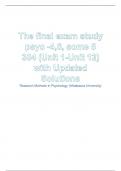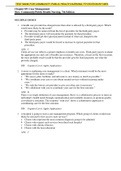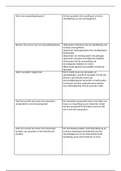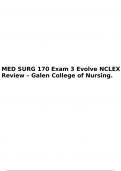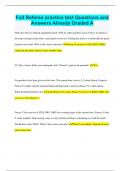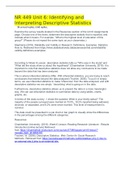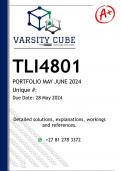Examen
Psyc 304 Final exam-Research Methods in Psychology (Athabasca University)
- Grado
- Institución
Psyc 304 Final exam-Research Methods in Psychology (Athabasca University) 1. What is the difference between empirical and non-empirical methods of knowing about behaviour? a. Empirical methods are based off of experiences i. Intuition-judgement not based on reasoned steps ii. Common sense- int...
[Mostrar más]
